New protein can replace ZnO and add health benefits
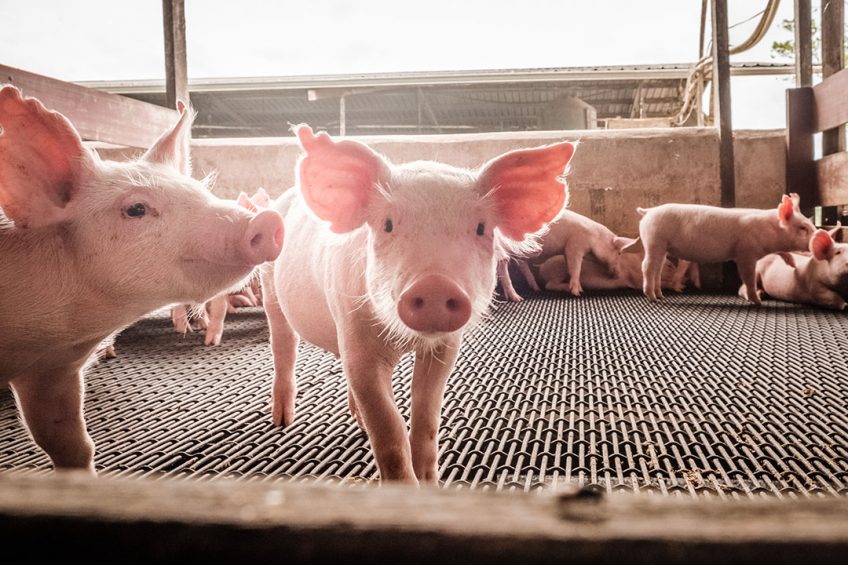
Can complementary feeds replace zinc oxide without increasing antibiotic usage? Or production costs? A research to those questions has just been finished by Copenhagen University, FermentationExperts and European Protein, the latter producing complementary lactic acid fermented protein. Results will be made public at the Zero Zinc Summit in Copenhagen, Denmark on the 17th and 18th of June.
“We often see feeding trials where protein has been reduced to minimise diarrhoea – this affects the growth and has a negative impact on the farmers bottom line. We need to present a solution with a standard amount of protein, that is financially sustainable for the farmer,” says Jens Legarth, CEO of European Protein.
The feeding regimes
Consequently, a trial on 3 groups of pigs with the 3 following feed regimes was carried out:
- Basic diet – control group
- Basic diet added 2.500 ppm zinc oxide group
- Basic diet added 10 % EP100i group
All diets contained the standard amount of protein with additional highly digestible plant protein. On one hand, the results are expected and on the other hand they are very surprising for European Protein.
“We learned from a pilot study that we can replace zinc without increasing mortality and feed cost for the farmer. It was new to us, that prescribed zinc seemed to damage the immune system hampering the inflammation response in the gut. We now have enough evidence to prove, that fermented plant protein does the exact opposite, namely enforcing the immune system and thereby reducing the risk of gut inflammation,” Jens Legarth concludes.
Zinc influences the gut bacteria – just as fermented protein
The diversity in the gut bacteria and the balance of beneficial versus the commensal bacteria in the gut is important for the pig’s overall health and well-being.
What the trial showed, was that zinc oxide increased the diversity of the bacteria and allowed much more lactic acid bacteria to be present in the gut. The beneficial bacteria then repressed the bacteria causing illness and created a balanced gut that supports pig health. This is one of the reasons why zinc oxide effectively handles diarrhoea.
When comparing the diversity and balance of the 3 feeding regimes, it was found, that lactic acid fermented protein altered the gut bacteria in a very similar fashion to zinc oxide. In both cases, the amount of lactic acid bacteria was more than doubled, the diversity improved, and the balance was restored. The basal diet had no positive influence on the diversity, nor did it promote lactic acid bacteria.
“We didn’t expect to find that zinc oxide has a similar modulating effect on the gut bacteria as fermented protein. The similarity is striking, and might be the reason as to why EP100i has been successful when it comes to supporting gut health,” says Jens Legarth.
Previous trials showed, that the diversity created by EP100i is consistent when the supplement is added – and that the supplement will not trigger resistance.
The right feed improves the immune system and feed intake
The immune system of the young piglets is fragile and easily influenced by the complementary feeding solutions supplemented. Making sure that a well-functioning immune system is developed, makes sense for both the pigs well-being but also for the bottom line when it comes to battling illness and ensuring a better feed intake. The trial shows that the right feed can make a difference in the development of the immune system and feed intake.
A high feed intake depends on the pig’s ability to absorb nutrients. A gut that is ‘well equipped’ is more likely to absorb nutrients effectively thus ensuring a better use of the feed. The trial shows, that zinc oxide and EP100i both have a positive development of intestinal mucosa, where villi and crypts developed larger in pigs – both significantly better than the control group.
Building an armour against causative bacteria
The thickness of the gut barrier or lining shows how effective it is to prevent causative bacteria finding their way into the blood stream of the pigs. The barrier works as an armour against bacteria causing illness. The trial showed, that pigs fed with fermented protein significantly improved the thickness of the gut barrier compared to the control group. Zinc had a less positive effect on the lining compared to EP100i.
Zinc causes inflammation
Gut inflammation is a common and widespread problem in pig production. Though, zinc oxide effectively treats diarrhoea it is also – just as antibiotics – a generous contributor of gut inflammation. When sampling the tissue of the piglets from the 3 different feed regimes, we found, that pigs fed on zinc oxide had a less developed immune system as compared to EP100i, and that the zinc oxide-pigs suffered from severe gut inflammation.
“The use of zinc simply pushes the problem to a later stage in the pig production and ensures a continued need for antibiotics as the pig has no immune system left to fight of infections. The solution is antibiotics that contributes to an even weaker gut barrier, making room for further bacteria to enter the blood stream. It is a vicious circle, that we attempt to fight with the use of lactic acid fermented protein,” Jens Legarth argues.
Plant-protein pays off
The product EP100i has been tested on several pig production sites, and the overall results have been the same. Fermented plant protein can replace more expensive proteins like fishmeal and blood plasma and at the same time replace zinc oxide without compromising the production results. Pig farmers can save both the expensive animal protein and the cost of zinc-oxide. That’s why plant protein pays off.
Want to know more about the background and details of the trial?
If you want to learn more and see the data, then join Fermentationexperts poster session on the Zero Zinc Summit in Copenhagen, Denmark on the 17th and 18th of June, where the results and the background will be made public.
 Beheer
Beheer
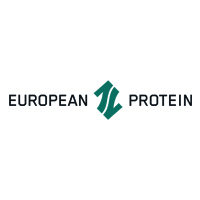
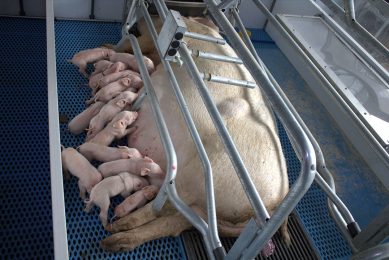
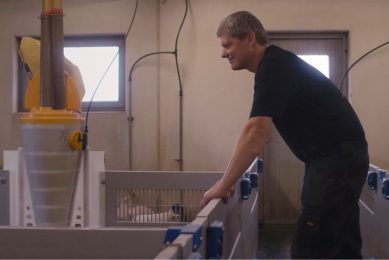
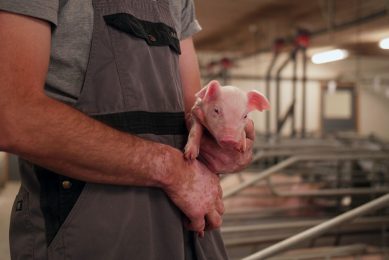
 WP Admin
WP Admin  Bewerk bericht
Bewerk bericht